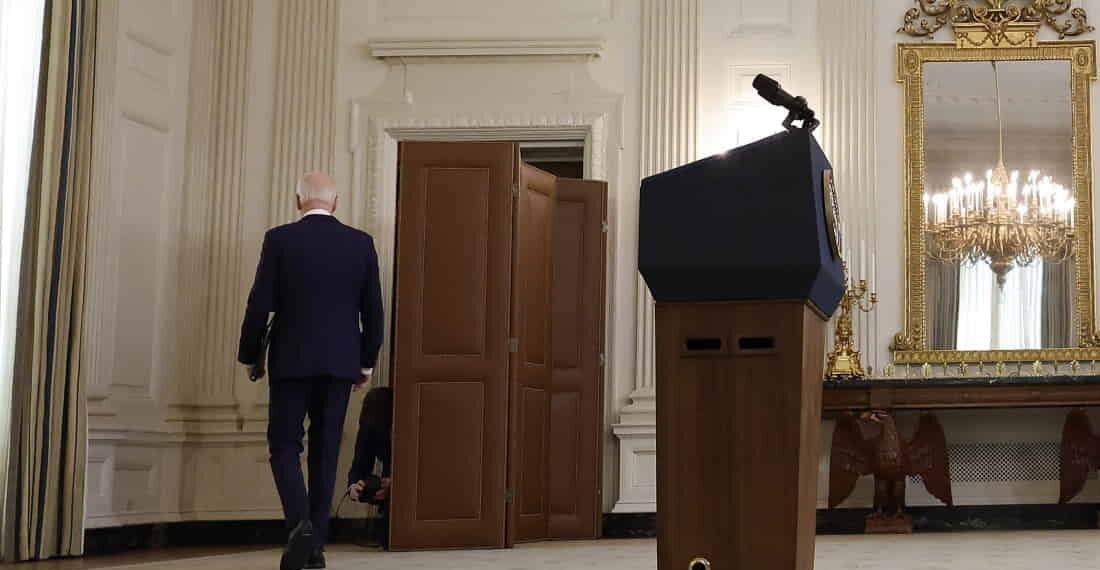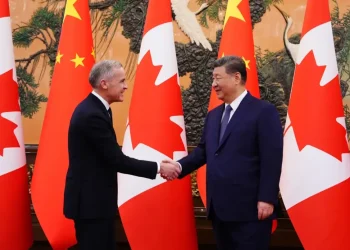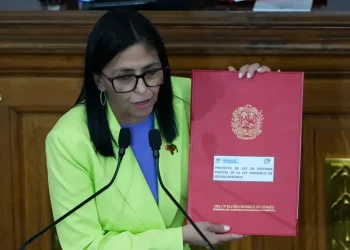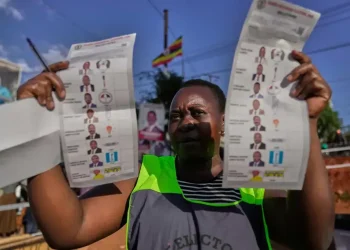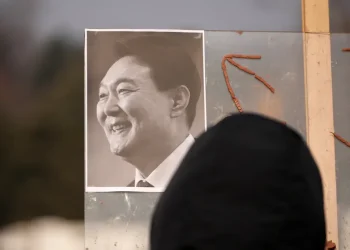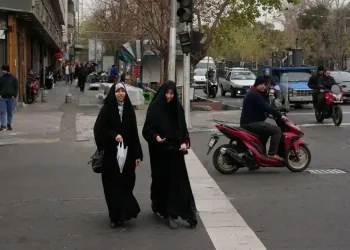Countdown to Chaos? Critical Concerns Before Inauguration Day
While much of the nation’s attention focuses on the first 100 days of a potential Trump 2.0 presidency, there is growing concern about the final days of Joe Biden’s term and the risks they could bring.
As we approach the transition, there are several hostile forces with vested interests in disrupting the peaceful transfer of power. These include foreign adversaries like the Chinese Communist Party (CCP), international globalists, extremist groups, and homegrown terrorists. Their combined influence and potential for chaos in the U.S. should not be underestimated.
Foreign and Domestic Threats to a Smooth Transition
The Chinese Communist Party has been preparing for conflict with the U.S. for years. Since May 2019, China has claimed that it is in a state of war with America. Additionally, the CCP has been sending military personnel into the U.S. under the guise of various missions. Their true objective could involve cyberattacks on critical infrastructure like power grids, transportation, and water resources. Although it remains unclear when Chinese President Xi Jinping will act, his decisions may be influenced by his domestic challenges and the impending political shift in the U.S.
In the financial realm, large American investment firms continue to fund Chinese companies, many of which are tied to the CCP. These corporations may be helping build weapons aimed at harming the U.S. Trump, if re-elected, is likely to curb this practice, which would certainly anger the Chinese regime and its supporters in U.S. financial markets.
Globalists’ Push for Control
Another key group that stands to lose from a Trump presidency is the globalist agenda. With treaties that empower international organizations like the World Health Organization (WHO) and the United Nations (UN), globalists are working to establish greater control over national policies regarding pandemics, climate change, migration, and more. These accords, which bypass U.S. sovereignty and have yet to be ratified by the Senate, give bureaucrats the authority to enforce emergency measures in response to various crises.
Globalists fear that Trump’s return to office would derail their plans. If a global crisis were to be declared, it could provide a pretext to implement policies that destabilize the U.S. and delay the peaceful transfer of power.
Sharia-Supremacists and Domestic Extremists
Alongside foreign threats, domestic extremists also pose a significant danger to U.S. stability. Sharia-supremacists, seeking to establish a global caliphate, are active in regions like Syria, Iran, and Egypt. Their efforts to disrupt Western nations, including through rising jihadist violence in Europe, could spill over into the U.S. with devastating consequences.
The U.S. has also seen the rise of Marxist/Maoist groups like Antifa and Black Lives Matter, which have previously engaged in violent protests and riots. These groups have the potential to reignite chaos, especially in the politically charged atmosphere leading up to the inauguration. If such violence were to coincide with actions from foreign enemies, it could severely impact the smooth transfer of power.
Preparing for the Worst: How to Protect the Transition
While it’s not certain that any of these threats will materialize, it’s vital for Americans to be aware of the potential for disruption. The peaceful transfer of power may face challenges in the coming weeks, and it’s important to recognize the risks.
To mitigate these dangers, several steps should be taken at the state and local levels:
- Raise awareness of potential threats and ensure communities are prepared.
- Crowdsource intelligence about hostile activities and identify potential risks.
- Enhance personal and community preparedness in case of emergencies.
- Strengthen law enforcement readiness, including local police, National Guard, and constitutional sheriffs.
- Protect critical infrastructure and vulnerable targets from attack.
- Prepare for contingencies, including the possibility of martial law or attempts to delay the inauguration.
These actions should be taken seriously by both local governments and concerned citizens. By increasing “situational awareness” and vigilance, Americans can help safeguard the peaceful transition of power and ensure that the will of the majority, as expressed in the November elections, is respected.
Conclusion: Ensuring a Peaceful Transition of Power
While the risks outlined above are concerning, they do not have to become reality. By remaining vigilant and prepared, Americans can prevent these forces from creating chaos during the final days of the Biden administration. Collectively, we can ensure that the transition to a new government happens smoothly, and that democracy is upheld in the face of potential threats. The peaceful transfer of power is crucial to the stability of the nation, and it’s in the hands of every patriot to help preserve it.
This article was rewritten by JournosNews.com based on verified reporting from trusted sources. The content has been independently reviewed, fact-checked, and edited for accuracy, neutrality, tone, and global readability in accordance with Google News and AdSense standards.
All opinions, quotes, or statements from contributors, experts, or sourced organizations do not necessarily reflect the views of JournosNews.com. JournosNews.com maintains full editorial independence from any external funders, sponsors, or organizations.
Stay informed with JournosNews.com — your trusted source for verified global reporting and in-depth analysis. Follow us on Google News, BlueSky, and X for real-time updates.
